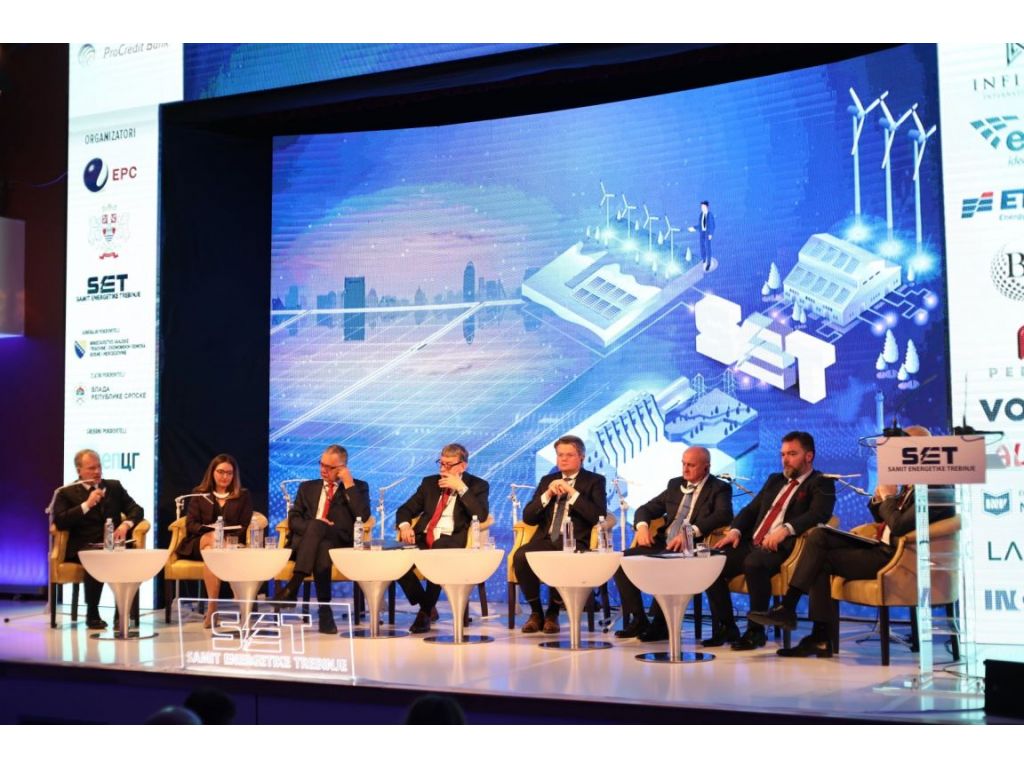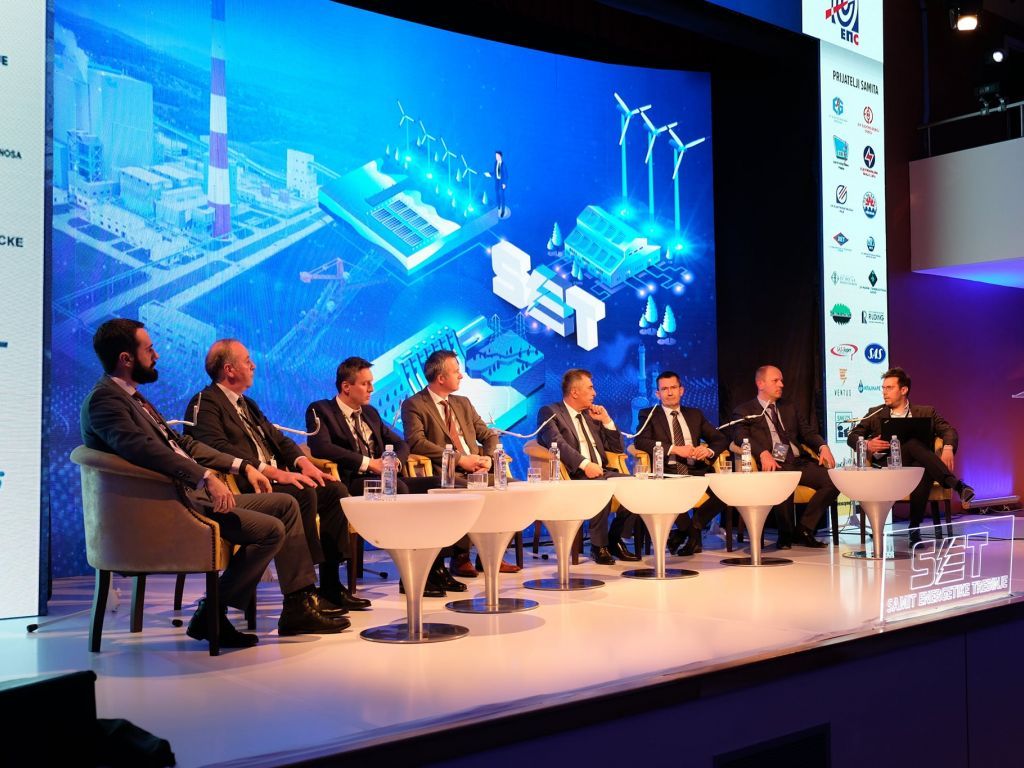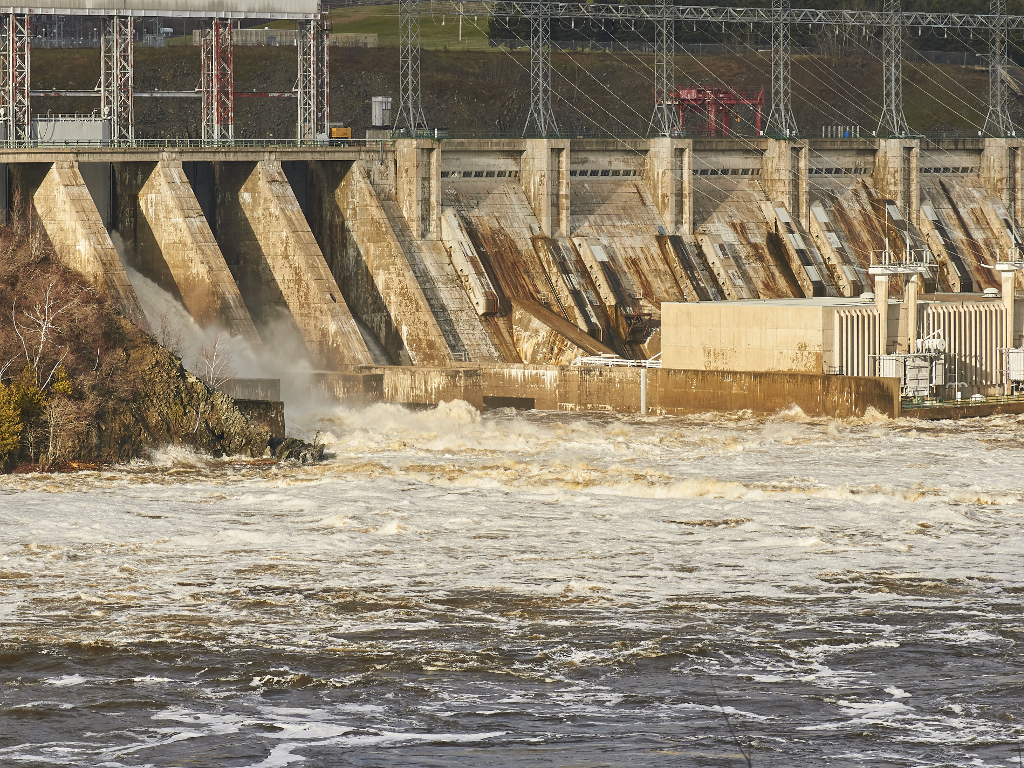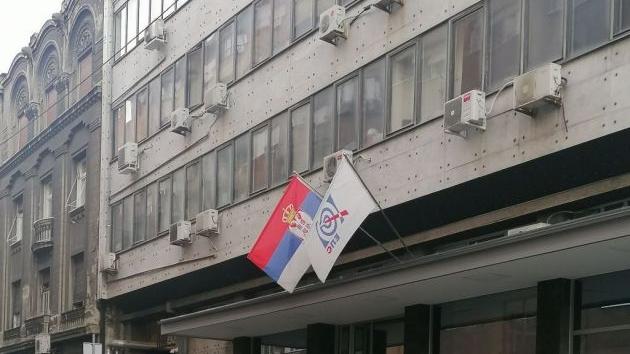SET 2022: The Region and Energy Transition – Who is the Champion, and Who Still Has a Lot of Work to Do?
Source: eKapija
 Sunday, 27.03.2022.
Sunday, 27.03.2022.
 14:43
14:43
 Sunday, 27.03.2022.
Sunday, 27.03.2022.
 14:43
14:43
The ministers of the region, UNDP and EBRD at the first panel of the 2022 Trebinje Energy Summit (Photo: SET)

As he pointed out, there have been great turbulences in the energy market and that is why careful steps need to be made, all to the end of preserving the energy stability and security.
– We are aware that we have obligations toward the documents that BiH has signed. One of them is the process of decarbonization, the preparation of the Integrated National Energy and Climate Plan Until 2030. We are doing this in an adequate way, in coordination with entity bodies, because, in the domain of energy, it is the entities that are in charge, and the Ministry of Foreign Trade of BiH coordinates the activities. We have formed seven work groups for the preparation of that plan, and 120 experts from all levels are involved. We have completed the basic scenario, we are talking with the European Commission and our estimate is that we can have it by 2030, if the entities work together – Kosarac said.
The minister of energy of RS, Petar Djokic, continued the topic started by minister Kosarac and added that RS was working hard to fulfill its part of the obligations. He pointed out that they had set quality goals when it comes to energy transition and that they have already done a lot, on the basis of the innovated Energy Development Strategy from 2018. He believes that all the steps need to be made in order to preserve the stability of the system, preserve the environment, and then also honor the existing legislation.
– Such big reforms cannot be expected from BiH, due to the way it is organized, and we also don’t have the kind of capital that is strong enough for investments in RES. However, we will not be outside that process. I believe that Europe will not be breaking the interests of our small state and that it will enable our energy system to respond to these tasks.
So far, RS has made investments in the project of the desulfuring of the TPP Ugljevik and the emission of harmful gases has dropped 97%, and a similar job awaits them at the TPP Gacko.
– Through development plans, we are pushing RES projects. We have already agreed certain investments, made decisions, signed concession agreements, and in the next five years, we will get 700 MW in new facilities based on RES. We have a hard decision ahead of us about having the thermal power plants stop working, and such decision will depend on a range of factors, such as the current ones regarding the conflict of Russia and Ukraine. We are ready to be part of all the processes, but are also asking for protection, because we are not as strong as other European states.
He repeated that the development of solar power plants and wind farms would bring great benefits to municipalities in Herzegovina.
The director of the Energy Community Secretariat, Artur Lorkowski, said that BiH is an important member of the Energy Community.
He said that the community had identified numerous flaws, which were being discussed by the Energy Community and the authorities and expressed his hope that the errors would be removed.
– We at the Energy Community Secretariat hope that we will convince the governments of the states in the region that it is possible to achieve that energy independence on the regional level – Lorkowski said.
The question of paying the CO2 fee is a question that is being discussed, because, if they want to export electricity to the EU, the fee will have to be paid. That is why there should be a turn toward RES, because BiH has it, but a good legal framework for future investments needs to be made. We at the Energy Community believe that the Green Agenda needs to be implemented as soon as possible and we believe that the decarbonization process is a good response to the energy crisis. We need to be aware of the risks of the period of the transition of the energy sector, but if we don’t take the risks, we won’t achieve the goals. A very important factor will be technological readiness and I am sure that we have secured the technical tools to facilitate this process for the states – Lorkowski said.
North Macedonia wants to meet all the obligations from the Green Agenda by 2040, said Zoran Manevski, the deputy minister of economy of North Macedonia.
– In the past four years, we have carried out energy reforms, adopted the Law on Energy, through which the Third Energy Package of the EU was implemented, entailing directives which pertain to the internal energy market, and we have also adopted plenty of bylaws which were necessary in order for the law to be implemented. All this is the reason why we have been pronounced the champion of energy reforms by the Energy Community Secretariat.
(Photo: SET)

– The total power of the photovoltaic power plants in Oslomej will be 120 MW and they will fully replace the lignite-powered thermal power plant which is currently in operation. Investors will sell electricity in an open market and employ around 100 people from the existing thermal power plant.
The transition of the TPP Bitolj, as Manevski pointed out, will be a challenge in the next 20 years, because it is a pillar of the energy system of North Macedonia in the past 40 years.
– We are also preparing a feasibility study for the cogeneration gas power plant of 250 MW, and over 250 MW of solar power plants are planned in place of old mines. Also, there’s a plan to build a heating pipeline to the city of Bitolj and other municipalities which gravitate toward that city. We need support from financiers – Manevski said.
That it is extremely important to have a good financial basis for investments in the new energy facilities was also emphasized by Halko Balavac, the assistant minister of energy of the Federation of BiH.
Although FBiH predominantly gets electricity from fossil fuels, it does not want to lag behind the process of energy transition and raising of solar power plants and wind farms. Solar power plants will thereby be raised on old mines, and EP HZ HB will invest a lot of money in a solar power plant of 150 MW.
– We will soon publish an invitation for the preparation of the Energy Strategy and the plan is for it to work for a year. Our current Framework Energy Strategy is dominated by thermal blocks, but private companies are increasingly interested in investing in RES. Foreigners, but also local companies, are especially interested in wind farms and solar power plants. Tesanj, Gradacac, Gracanica are only some of the cities where we see that local companies want to invest some of their money in the production of electricity – Balavac said.
The projects are there, so are the financiers, the only limiting factor is time, said Balavac. When it comes to the financiers, the EBRD has been the supporter to the local power companies for years now. Manuela Naessl, the director of the EBRD office for BiH, repeated that it was good that RS had adopted the Law on RES and that the Federation was expected to do the same.
(Photo: Echunder/shutterstock.com)

An equally important partner in this sector in BiH is the UNDP, which provides immeasurable support to the local sector. Regarding this, Stephen Kinloch Pichat, the deputy resident representative at the UNDP for BiH, said that energy efficiency projects were not just good ecologically, but that they were also a good basis for economic benefits. – In both entities, the governments had recognized the importance of this question, so, lately, 60 million convertible marks have been invested in these projects, primarily in the reconstruction of public sector buildings, and the UNDP supported the works by providing 20% of that amount. Investments in EE could save around 5.5 million convertible marks for the government budget in a year, and the implementation of EE measures lowers the consumption of electricity in the public sector by nearly 60% annually.
What do the power companies of the region say?
The host of the gathering, the general director of Elektroprivreda RS (ERS), Luka Petrovic, repeated that investments were the only way to exit the energy crisis. That is why they have bravely stepped into new investments.
– We have started five investment projects of 430 MW, which will give ERS an additional 1,100 GWh of electricity. It is an annual income of 200 to 300 million euros and it is clear that it’s a rescue in these times. Those power companies which do not rely on the construction of new facilities will have a problem and I dare say they will be in bankruptcy. Because, you can’t increase the price of electricity for the citizens and the economy without end, because the government budgets than have to provide money up to a certain amount that the consumers can handle, so there are no exports. The only exit are investments. For example, in the past 15 years or so, HEP has done the most regarding that question and they have healthy alternatives and a healthy account balance.
As for the thermal power plants, Petrovic says that he will keep them, because, for example, Poland doesn’t want to give up coal either.
– We can’t give up coal that quickly, but we are ready to pay CO2 fees and it can only be refinanced from RES facilities, because that can’t be billed to the citizens and the economy, and the GDP of the countries of the region is much lower than in Europe. I believe that all the countries of the region will have a completely different energy portfolio in ten years and that we will use the opportunities available to us.
His Serbian colleague, the head of EPS, Miroslav Tomasevic, also believes that the basic energy sources should be kept, namely, coal, especially in crisis times.
– All the numbers are irrelevant when a crisis comes, and then the only thing to do is to preserve stability. That’s why I wouldn’t like to talk about the deadlines for Serbia, but we are certainly oriented toward investments in RES.
In the production portfolio of Elektroprivreda CG, coal accounts for 40%, whereas water makes up 60%. Milutin Djukanovic, the president of the Board of Directors of EPCG, he emphasized that the moment was right to create new sources of electricity.
– We see that the prices of electricity are growing, and the solution always lies in new facilities. The prices will not go in a good direction, so we need new sources. Electricity is the only resource that we can always sell. It is important to raise as many facilities, but we must facilitate the procedures of investment.
He says that Montenegro has the biggest electricity deficits in the summer, so the “Solari” project is an ideal way to compensate for that.
Hrvatska Elektroprivreda (HEP), the Croatian power company, has progressed the most in investing in RES. The drop of the prices of the technologies of construction of solar power plants and wind farms is a historic opportunity for them to compensate for the imports that they have had to pay before.
– We have a goal – by 2030, we want 1,500 new MW of installed power, that is, 700 MW of solar and wind power, 550 MW of hydro power and 250 MW of high-efficiency cogeneration. Last year, we put 60 MW from wind into operation, this year, we will have 30 MW of finished solar facilities and we are starting the construction of 100 MW of solar capacities in the location of the Korlat wind farm. In early 2023, in Zagreb, we are putting into operation cogeneration facilities of 150 MW, next year, we should start building hydro power systems Kosinj and Senj 2 and a range of other solar power plants on the local level – said Petar Sprcic, a member of the management of HEP.
He says that the Government of Croatia has firmly decided to have 1,500 new megawatts by 2025 and an additional 2,500 MW by 2030 in Croatia.
– There is a great interest in investments in RES, and at the moment, there are demands for 6,000 MW in the Ministry of Energy. We will see how the process of connecting to the network will go. Nuclear energy in Croatia is part of it and we can’t give it up – Sprcic said.
Elektroprivreda HZ HB has its famous slogan “100% renewable”, because it produces electricity exclusively from wind and water. They now have over 900 MW of power installed and an annual production of 1,800 GWh, which has been their goal so far, pointed out Drago Bago, the executive director for development at EPHZHB.
– In the next three to four years, we will surely build an additional amount of approximately 300 MW from RES, which will raise us to some 2,400 to 2,500 GWh of annual production. There are risks in the summer, but we will overcome that by building a solar power plant for the purpose of our balancing.
There will especially be challenges for Elektroprivreda BiH, because 80% of the production of electricity is based on coal, and 20% on water, and the Podvelezje wind farm has been working as well since last year. According to Senad Salkic, the executive director for capital investments in EPBIH, it cannot be expected for decarbonization to be carried out in such short deadlines.
– That doesn’t mean that, as a company, we are not oriented toward RES, on the contrary, we are developing such projects, and five projects of solar power plants are in focus at the moment. As for EPBIH and the transition, what’s needed is the transition time for the reconstruction and construction of new capacities, but we will have to preserve the old blocks, in order to meet the needs of FBiH. We need to preserve the economy and social peace – Salkic pointed out.
What lies ahead of EPBIH now is the development of five solar power plants in mining fields, and public invitations for the installation of 300 MW of capacities are to follow soon – there will be three tenders this year and two next year.
– Also, we are working on two hydro energy projects and two wind farms with the help of the German Development Bank. With those two wind farms, we expect an additional 100 MW of RES.
North Macedonia is already bravely heading down the path of energy transition for a long time now, justifying the champion status given to it by the Energy Community. This country also wants to decentralize its energy sources, in order to secure stability.
They have signed an agreement with a Greek partner and they will participate with 10% in the LNG terminal in Alexandroupoli, together with three Greek companies and a Bulgarian one, said Blagoj Gajdardziski, the director for development and investments in the company ESM.
– We are talking some 500,000 m3 a year, which is about on the level of the current consumption in North Macedonia. If we take into account that the capacity of the gas pipeline from Bulgaria is around one million, that means that we can expect the prices to be competitive and, if the delivery of the Russian gas stops, we believe that we will have an alternative way of supply. The terminal needs to be completed at the end of 2024, and we have an offer from Greek partners to invest in the gas central and we are still deliberating on that.
In the past year, they have completed a solar power plant of 10 MW, and they have also received grants from the EBRD for another two solar power plants of a total power of 30 MW. They have also signed agreements with two strategic partners for large photovoltaic power plants of 400 MW in the location of the abandoned project of a cargo airport in Stip.
– By the end of March, we should apply for the financing of 160 MW of solar capacities and 50 MW of wind capacities at the German Development Bank. The procedure is not simple, but we hope to succeed – Gajdardziski concluded.
Let us remind that the 2022 Trebinje Energy Summit was held between March 16 and 18, organized by Elektroprivreda RS, the City of Trebinje and the company SET.
The eKapija portal was the media sponsor of the Summit. You can read about the participants and the topics of the Summit HERE.
Teodora Brnjos
Tags:
SET doo
Elektroprivreda RS
Elektroprivreda Srbije
Elektroprivreda Crne Gore
Hrvatska elektroprivreda
ESM North Macedonia
Elektroprivreda HZ HB
Elektroprivreda BIH
UNDP BiH
EBRD in BiH
Ministry of Energy of RS
Ministry of Energy of FBiH
Ministry of Foreign Trade of BiH
Blagoj Gajdardžiski
Senad Salkić
Drago Bago
Luka Petrović
Petar Sprčić
Milutin Đukanović
Miroslav Tomašević
Staša Košarac
Petar Đokić
Artur Lorkowski
Zoran Manevski
Halko Balavac
Stephen Kinloch Pichat
Comments
Your comment
Naš izbor
Most Important News
Full information is available only to commercial users-subscribers and it is necessary to log in.
Follow the news, tenders, grants, legal regulations and reports on our portal.
Registracija na eKapiji vam omogućava pristup potpunim informacijama i dnevnom biltenu
Naš dnevni ekonomski bilten će stizati na vašu mejl adresu krajem svakog radnog dana. Bilteni su personalizovani prema interesovanjima svakog korisnika zasebno,
uz konsultacije sa našim ekspertima.


 Izdanje Srbija
Izdanje Srbija Serbische Ausgabe
Serbische Ausgabe Izdanje BiH
Izdanje BiH Izdanje Crna Gora
Izdanje Crna Gora


 News
News







